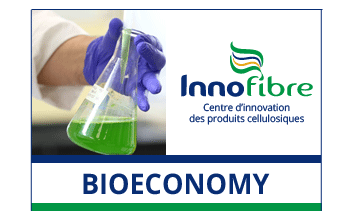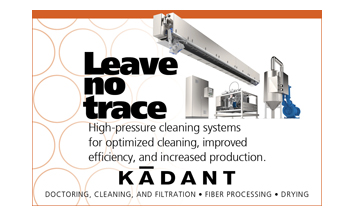Jami Pearson, Patty Pritt and MaryAnn Asti share their stories as pioneering women at Domtar’s Johnsonburg Mill.
As we celebrate Women’s History Month, Domtar honors pioneering women in our industry and our company.
While women make up about half of the workforce in the United States, according to recent U.S. Census data, they account for only about 30 percent of the millions of people working in manufacturing.
Domtar has supported a variety of initiatives in our company, industry and across the nation to encourage and enhance women’s careers in the forest products industry.
Pioneering women papermakers at our Johnsonburg Mill — Mary Ann Asti, Patty Pritt and Lynn Groeger — also made a bit of Domtar history in 2022 when their leadership on the J1 paper machine marked the first time three of the four crew leaders on that machine are women.
Pioneering Women Share Their Stories
MaryAnn Asti joined the mill in 1979, one of the only women in hourly production at that time. “I was 19, straight out of school, working with middle-aged men,” she says. “It was a big culture shock for me, and for them.”
Asti worked hard and absorbed everything she could, proving that she could do the job. She says times have changed since then: “There’s no more ‘can a woman do it or not?’ We all help each other.”
Pritt, who joined in 1984, agrees. She also notes that automation has helped level the playing field.
“Back then, there was a lot more manual labor. We had to hand thread the paper machines. Women could do it, but it was physically demanding,” she says.
Jami Pearson has a special perspective on working at the mill. She began work at Johnsonburg 15 years ago and now sits in the same seat her father used to, as a crew leader for power and recovery. She’s proud of the advancements women have made in a variety of areas at the mill.
Pearson started on a paper machine but later moved to power and recovery. She was the first woman to work on the recovery boiler and is now a crew leader. She’s also no longer the only woman on the team.
“My crew has had a good bit of turnover since I started, with retirements,” she says. “We’ve had younger people joining the department, including women.”
Emily Schreiber, who joined the mill in 2021, agrees that men and women are treated equally at the mill today. She is one of four women working on the recovery boiler and says that it’s a great place to work.
“Sometimes a guy will give me a heads up if something is going to be physically difficult — like turning a tight joint — but the men ask for help too. We all talk to each other the same, and everyone pulls their weight,” she says.
Johnsonburg Mill Manager Ken Baron recognizes that it was not an easy road for Asti or Pritt or some of the other pioneering women at Johnsonburg. “They are incredibly strong; they have worked hard to get where they are,” Baron says. “We are proud of them and grateful for their resilience.”
Pearson is not looking for attention because she’s a woman, but she recognizes that it’s important for women and girls to see opportunities for themselves in manufacturing. “I have a 17-year-old daughter,” she says. “She sees that this is a possibility. There’s a lot of room for growth for women in manufacturing.”
Source: Domtar Newsroom













